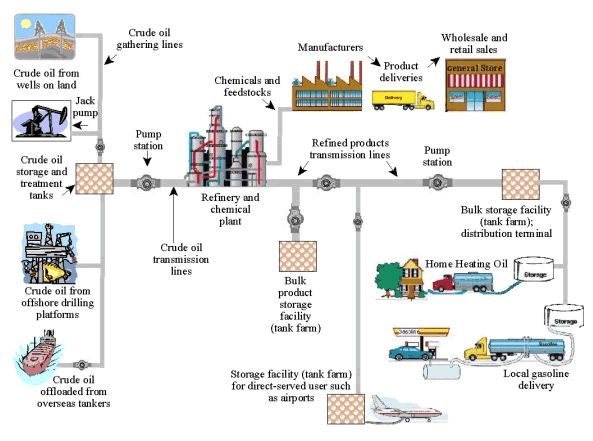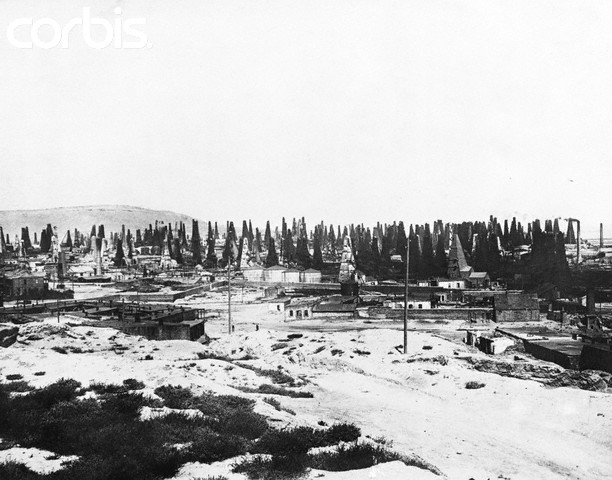|
ISO 20815
ISO 20815 is the International Organization for Standardization (ISO) standard for production assurance and reliability management in the petroleum, petrochemical and natural gas industries.ISO 20815:2008: Petroleum, petrochemical and natural gas industries - Production assurance and reliability management accessed 11 March 2018 The 2008 version of the standard was last reviewed and confirmed in 2012. It has been replaced by ISO/DIS 20815:2018 in October 2018. accessed 12 December 2018 The division of the |
ISO Logo Red
ISO is the most common abbreviation for the International Organization for Standardization. ISO or Iso may also refer to: Business and finance * Iso (supermarket), a chain of Danish supermarkets incorporated into the SuperBest chain in 2007 * Iso Omena ("Big Apple"), a shopping center in Finland * Incentive stock option, a type of employee stock option * Independent Sales Organization, a company that partners with an acquiring bank to provide merchant services * Insurance Services Office, an American insurance underwriter * Intermarket sweep order, a type of limit order on financial markets * Iso (automobile), an Italian car manufacturer Arts and entertainment * Isomorphic Algorithms (ISOs), a fictional race in the digital world of '' Tron: Legacy'' * Iso (comics), a Marvel comics character Music * ''Iso'' (album), an album by Ismaël Lô * Iceland Symphony Orchestra * Indianapolis Symphony Orchestra, Indiana, US * International Symphony Orchestra, of Sarnia, Ontario and Port Hur ... [...More Info...] [...Related Items...] OR: [Wikipedia] [Google] [Baidu] |
International Organization For Standardization
The International Organization for Standardization (ISO ) is an international standard development organization composed of representatives from the national standards organizations of member countries. Membership requirements are given in Article 3 of the ISO Statutes. ISO was founded on 23 February 1947, and (as of November 2022) it has published over 24,500 international standards covering almost all aspects of technology and manufacturing. It has 809 Technical committees and sub committees to take care of standards development. The organization develops and publishes standardization in all technical and nontechnical fields other than electrical and electronic engineering, which is handled by the IEC.Editors of Encyclopedia Britannica. 3 June 2021.International Organization for Standardization" ''Encyclopedia Britannica''. Retrieved 2022-04-26. It is headquartered in Geneva, Switzerland, and works in 167 countries . The three official languages of the ISO are English, F ... [...More Info...] [...Related Items...] OR: [Wikipedia] [Google] [Baidu] |
Petroleum
Petroleum, also known as crude oil, or simply oil, is a naturally occurring yellowish-black liquid mixture of mainly hydrocarbons, and is found in geological formations. The name ''petroleum'' covers both naturally occurring unprocessed crude oil and petroleum products that consist of refined crude oil. A fossil fuel, petroleum is formed when large quantities of dead organisms, mostly zooplankton and algae, are buried underneath sedimentary rock and subjected to both prolonged heat and pressure. Petroleum is primarily recovered by oil drilling. Drilling is carried out after studies of structural geology, sedimentary basin analysis, and reservoir characterisation. Recent developments in technologies have also led to exploitation of other unconventional reserves such as oil sands and oil shale. Once extracted, oil is refined and separated, most easily by distillation, into innumerable products for direct use or use in manufacturing. Products include fuels such as gasolin ... [...More Info...] [...Related Items...] OR: [Wikipedia] [Google] [Baidu] |
Petrochemical Industry
The petrochemical industry is concerned with the production and trade of petrochemicals. A major part is constituted by the plastics (polymer) industry. It directly interfaces with the petroleum industry, especially the downstream sector. Companies The top ten global petrochemical companies based on the 2008 revenues – excludes state-owned State ownership, also called government ownership and public ownership, is the ownership of an industry, asset, or enterprise by the state or a public body representing a community, as opposed to an individual or private party. Public owner ... companies: Countries and sites * Marun petrochemical complex Technology Conferences * Asia Petrochemical Industry Conference *International Petrochemical Conference by the AFPM Associations * American Fuel and Petrochemical Manufacturers (AFPM) * European Petrochemical Association * Gulf Petrochemicals and Chemicals Association Awards * Medal "For the Tapping of the Subsoil and Expan ... [...More Info...] [...Related Items...] OR: [Wikipedia] [Google] [Baidu] |
Natural Gas
Natural gas (also called fossil gas or simply gas) is a naturally occurring mixture of gaseous hydrocarbons consisting primarily of methane in addition to various smaller amounts of other higher alkanes. Low levels of trace gases like carbon dioxide, nitrogen, hydrogen sulfide, and helium are also usually present. Natural gas is colorless and odorless, so odorizers such as mercaptan (which smells like sulfur or rotten eggs) are commonly added to natural gas supplies for safety so that leaks can be readily detected. Natural gas is a fossil fuel and non-renewable resource that is formed when layers of organic matter (primarily marine microorganisms) decompose under anaerobic conditions and are subjected to intense heat and pressure underground over millions of years. The energy that the decayed organisms originally obtained from the sun via photosynthesis is stored as chemical energy within the molecules of methane and other hydrocarbons. Natural gas can be burned for he ... [...More Info...] [...Related Items...] OR: [Wikipedia] [Google] [Baidu] |
Oil And Gas Industry
The petroleum industry, also known as the oil industry or the oil patch, includes the global processes of exploration, extraction, refining, transportation (often by oil tankers and pipelines), and marketing of petroleum products. The largest volume products of the industry are fuel oil and gasoline (petrol). Petroleum is also the raw material for many chemical products, including pharmaceuticals, solvents, fertilizers, pesticides, synthetic fragrances, and plastics. The industry is usually divided into three major components: upstream, midstream, and downstream. Upstream regards exploration and extraction of crude oil, midstream encompasses transportation and storage of crude, and downstream concerns refining crude oil into various end products. Petroleum is vital to many industries, and is necessary for the maintenance of industrial civilization in its current configuration, making it a critical concern for many nations. Oil accounts for a large percentage of the wo ... [...More Info...] [...Related Items...] OR: [Wikipedia] [Google] [Baidu] |
Upstream (petroleum Industry)
The oil and gas industry is usually divided into three major sectors: upstream (or exploration and production - E&P), ''midstream'' and '' downstream''. The upstream sector includes searching for potential underground or underwater crude oil and natural gas fields, drilling exploratory wells, and subsequently operating the wells that recover and bring the crude oil or raw natural gas to the surface. The upstream industry has traditionally experienced the highest number of Mergers, Acquisitions (M&A) and Divestitures. M&A activity for upstream oil and gas deals in 2012 totaled $254 billion in 679 deals. A large chunk of this M&A, 33% in 2012, was driven by the unconventional/shale boom especially in the US followed by Russia and then Canada. The aggregate value of Upstream E&P assets available for sale (Deals in Play) reached a record-high of $135 billion in Q3 2013. The value of Deals in Play doubled from $46 billion in 2009 to $90 billion in 2010. With ongoing M&A activity, t ... [...More Info...] [...Related Items...] OR: [Wikipedia] [Google] [Baidu] |
Midstream (petroleum Industry)
The oil and gas industry is usually divided into three major components: upstream, midstream and downstream. The midstream sector involves the transportation (by pipeline, rail, barge, oil tanker or truck), storage, and wholesale marketing of crude or refined petroleum products. Pipelines and other transport systems can be used to move crude oil from production sites to refineries and deliver the various refined products to downstream distributors. Natural gas pipeline networks aggregate gas from natural gas purification plants and deliver it to downstream customers, such as local utilities. The midstream operations are often taken to include some elements of the upstream and downstream sectors. For example, the midstream sector may include natural gas processing plants that purify the raw natural gas as well as removing and producing elemental sulfur and natural gas liquids (NGL) as finished end-products. Service providers * Barge companies * Railroad companies * Trucking ... [...More Info...] [...Related Items...] OR: [Wikipedia] [Google] [Baidu] |
Downstream (petroleum Industry)
The oil and gas industry is usually divided into three major sectors: upstream, midstream, and downstream. The downstream sector is the refining of petroleum crude oil and the processing and purifying of raw natural gas, as well as the marketing and distribution of products derived from crude oil and natural gas. The downstream sector reaches consumers through products such as gasoline or petrol, kerosene, jet fuel, diesel oil, heating oil, fuel oils, lubricants, waxes, asphalt, natural gas, and liquefied petroleum gas (LPG) as well as naphtha and hundreds of petrochemicals. Midstream operations are often included in the downstream category and are considered to be a part of the downstream sector. Byproduct sulfur Crude oil is a mixture of many varieties of hydrocarbons and most usually have many sulfur-containing compounds. The oil refining process commonly includes hydrodesulfurization which converts most of that sulfur into gaseous hydrogen sulfide. Raw natural g ... [...More Info...] [...Related Items...] OR: [Wikipedia] [Google] [Baidu] |
Natural Gas
Natural gas (also called fossil gas or simply gas) is a naturally occurring mixture of gaseous hydrocarbons consisting primarily of methane in addition to various smaller amounts of other higher alkanes. Low levels of trace gases like carbon dioxide, nitrogen, hydrogen sulfide, and helium are also usually present. Natural gas is colorless and odorless, so odorizers such as mercaptan (which smells like sulfur or rotten eggs) are commonly added to natural gas supplies for safety so that leaks can be readily detected. Natural gas is a fossil fuel and non-renewable resource that is formed when layers of organic matter (primarily marine microorganisms) decompose under anaerobic conditions and are subjected to intense heat and pressure underground over millions of years. The energy that the decayed organisms originally obtained from the sun via photosynthesis is stored as chemical energy within the molecules of methane and other hydrocarbons. Natural gas can be burned for he ... [...More Info...] [...Related Items...] OR: [Wikipedia] [Google] [Baidu] |
Oil Refining
An oil refinery or petroleum refinery is an industrial process plant where petroleum (crude oil) is transformed and refined into useful products such as gasoline (petrol), diesel fuel, asphalt base, fuel oils, heating oil, kerosene, liquefied petroleum gas and petroleum naphtha. Petrochemicals feedstock like ethylene and propylene can also be produced directly by cracking crude oil without the need of using refined products of crude oil such as naphtha. The crude oil feedstock has typically been processed by an oil production plant. There is usually an oil depot at or near an oil refinery for the storage of incoming crude oil feedstock as well as bulk liquid products. In 2020, the total capacity of global refineries for crude oil was about 101.2 million barrels per day. Oil refineries are typically large, sprawling industrial complexes with extensive piping running throughout, carrying streams of fluids between large chemical processing units, such as distillation c ... [...More Info...] [...Related Items...] OR: [Wikipedia] [Google] [Baidu] |
Petroleum Industry
The petroleum industry, also known as the oil industry or the oil patch, includes the global processes of hydrocarbon exploration, exploration, extraction of petroleum, extraction, oil refinery, refining, Petroleum transport, transportation (often by oil tankers and pipeline transport, pipelines), and marketing of list of crude oil products, petroleum products. The largest volume products of the industry are fuel oil and gasoline (petrol). Petroleum is also the raw material for many petrochemical, chemical products, including pharmaceutical drug, pharmaceuticals, solvents, fertilizers, pesticides, synthetic Aroma compound, fragrances, and plastics. The industry is usually divided into three major components: upstream (petroleum industry), upstream, midstream, and downstream (petroleum industry), downstream. Upstream regards exploration and extraction of Petroleum, crude oil, midstream encompasses transportation and Oil terminal, storage of crude, and downstream concerns refining ... [...More Info...] [...Related Items...] OR: [Wikipedia] [Google] [Baidu] |






